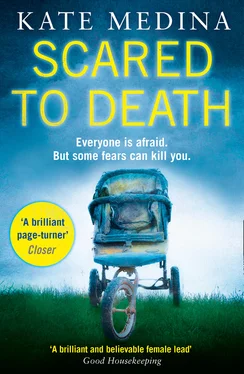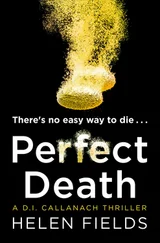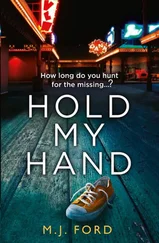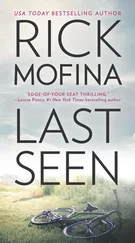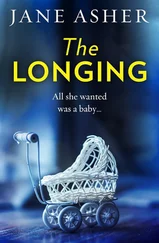KATE MEDINA
Scared to Death

HarperCollins Publishers
1 London Bridge Street,
London SE1 9GF
www.harpercollins.co.uk
Published by HarperCollins Publishers 2017
Copyright © Kate Medina 2017
Cover layout design © HarperCollins Publishers 2018
Cover photographs © Nikki Smith/Arcangel Images
Kate Medina asserts the moral right to be identified as the author of this work.
A catalogue record for this book is available from the British Library
This novel is entirely a work of fiction. The names, characters and incidents portrayed in it are the work of the author’s imagination. Any resemblance to actual persons, living or dead, events or localities is entirely coincidental.
All rights reserved under International and Pan-American Copyright Conventions. By payment of the required fees, you have been granted the non-exclusive, non-transferable right to access and read the text of this e-book on-screen. No part of this text may be reproduced, transmitted, down-loaded, decompiled, reverse engineered, or stored in or introduced into any information storage and retrieval system, in any form or by any means, whether electronic or mechanical, now known or hereinafter invented, without the express written permission of HarperCollins e-books
Source ISBN: 9780008132323
Ebook Edition © May 2017 ISBN: 9780008132262
Version: 2018-01-26
For my mother, Pamela Taylor, with love
The Story of the Three Bears
ONCE upon a time there were Three Bears, who lived together in a house of their own in a wood. One of them was a Little, Small, Wee Bear, and one was a Middle-Sized Bear, and the other was a Great, Huge Bear.
Robert Southey, 1774–1843
Table of Contents
Cover
Title Page
Copyright
Dedication
The Story of the Three Bears
Chapter 1
Chapter 2
Chapter 3
Chapter 4
Chapter 5
Chapter 6
Chapter 7
Chapter 8
Chapter 9
Chapter 10
Chapter 11
Chapter 12
Chapter 13
Chapter 14
Chapter 15
Chapter 16
Chapter 17
Chapter 18
Chapter 19
Chapter 20
Chapter 21
Chapter 22
Chapter 23
Chapter 24
Chapter 25
Chapter 26
Chapter 27
Chapter 28
Chapter 29
Chapter 30
Chapter 31
Chapter 32
Chapter 33
Chapter 34
Chapter 35
Chapter 36
Chapter 37
Chapter 38
Chapter 39
Chapter 40
Chapter 41
Chapter 42
Chapter 43
Chapter 44
Chapter 45
Chapter 46
Chapter 47
Chapter 48
Chapter 49
Chapter 50
Chapter 51
Chapter 52
Chapter 53
Chapter 54
Chapter 55
Chapter 56
Chapter 57
Chapter 58
Chapter 59
Chapter 60
Chapter 61
Chapter 62
Chapter 63
Chapter 64
Chapter 65
Chapter 66
Chapter 67
Chapter 68
Chapter 69
Chapter 70
Chapter 71
Chapter 72
Chapter 73
Chapter 74
Chapter 75
Chapter 76
Chapter 77
Chapter 78
Chapter 79
Chapter 80
Chapter 81
Acknowledgments
Read on for an Exclusive Extract From the New Jessie Flynn Novel:
About the Author
Also by Kate Medina
About the Publisher
Eleven Years Ago
The eighteen-year-old boy in the smart uniform made his way along the path that skirted the woods bordering the school’s extensive playing fields. He walked quickly, one hand in his pocket, the other holding the handle of the cricket bat that rested over his shoulder, like the umbrella of some city gent. Gene Kelly in Singin’ in the Rain . For the first time in a very long time he felt nimble and light on his feet, as if he could dance. And he felt even lighter in his heart, as though the weight that had saddled him for five long years was finally lifting. Light, but at the same time keyed-up and jittery with anticipation. Thoughts of what was to come drove the corners of his mouth to twitch upwards.
He used to smile all the time when he was younger, but he had almost forgotten how. All the fun in his life, the beauty that he had seen in the world, had been destroyed five years ago. Destroyed once, and then again and again, until he no longer saw joyfulness in anything. He had thought that, in time, his hatred and anger would recede. But instead it had festered and grown black and rabid inside him, the only thing that held any substance or meaning for him.
He had reached the hole in the fence. By the time they moved into the sixth form, boys from the school were routinely slipping through the boundary fence to jog into the local village to buy cigarettes and alcohol, and the rusty nails holding the bottom of the vertical wooden slats had been eased out years before, the slats held in place only at their tops, easy to slide apart. Nye was small for his age and slipped through the gap without leaving splinters or a trace of lichen on his grey woollen trousers or bottle green blazer, or threads of his clothing on the fence.
The hut he reached a few minutes later was small and dilapidated, a corrugated iron roof and weathered plank walls. It used to be a woodman’s shed, Nye had been told, and it still held stacks of dried logs in one corner. Sixth formers were the only ones who used it now, to meet up and smoke; the odd one who’d got lucky with one of the girls from the day school down the road used it for sex.
Nye had detoured here first thing this morning before class to clean it out, slipping on his leather winter gloves to pick up the couple of used condoms and toss them into the woods. Disgusting. He hadn’t worried about his footprints – there would be nothing left of the hut by the time this day was over.
Now, he sprayed a circular trail of lighter fuel around the inside edge of the hut, scattered more on the pile of dry logs and woodchips in the corner, ran a dripping line around the door frame and another around the one small wire-mesh-covered window. Tossing the bottle of lighter fuel on to the stack of logs, he moved quietly into a dark corner of the shed where he would be shielded from immediate view by the door when it opened, and waited. He was patient. He had learned patience the hard way and today his patience would pay off.
Footsteps outside suddenly, footsteps whose pattern, regularity and weight were seared into his brain. Squeezing himself into the corner, Nye held his breath as the rickety wooden door creaked open. The man who stepped into the hut closed the door behind him, pressing it tightly into its frame as Nye knew he would. He stood for a moment, letting his vision adjust to the dimness before he looked around. Nye saw the man’s eyes widen in surprise when he noticed him standing in the shadows, when he saw that it wasn’t the person he had been expecting to meet. His face twisted in anger – an anger Nye knew well.
Swinging the bat in a swift, neat arc as his sports masters had taught him, Nye connected the bat’s flat face, dented from contact with countless cricket balls on the school’s pitches, with the man’s temple. A sickening crunch, wood on bone, and the man dropped to his knees. Blood pulsed from split skin and reddened the side of his face. Nye was tempted to hit him again. Beat him until his head was pulp, but he restrained himself. The first strike had done its job and he wanted the man conscious, wanted him sentient for what was to come.
Читать дальше
